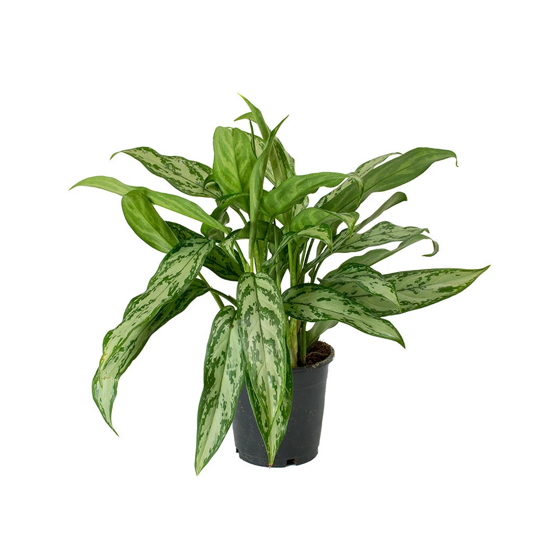Aglaonema Silver Queen is a popular and attractive houseplant known for its striking silver and green foliage. Here’s a detailed overview:
Overview
- Common Name: Silver Queen
- Family: Araceae
Characteristics of Aglaonema Silver Queen
- Leaves: The leaves of ‘Silver Queen’ are large, glossy, and oval-shaped, featuring a beautiful combination of silver, gray, and dark green. The variegation can vary between plants, creating a stunning visual effect.
- Growth Habit: This variety grows upright and can reach heights of about 2 to 3 feet (60 to 90 cm), making it a lovely focal point in indoor spaces.
Care Tips of Aglaonema Silver Queen
- Light: Prefers bright, indirect light but can tolerate low light conditions. However, brighter light will help maintain its vibrant coloration. Avoid direct sunlight, which can scorch the leaves.
- Watering: Water when the top inch of soil feels dry. Ensure the pot has good drainage to prevent root rot. In the growing season (spring and summer), you may need to water more frequently.
- Humidity: Thrives in higher humidity levels, making it suitable for bathrooms or kitchens. If your home is dry, consider misting the leaves or using a humidity tray.
- Temperature: Ideal temperatures range from 65°F to 80°F (18°C to 27°C). Protect it from cold drafts and sudden temperature fluctuations.
Soil
Use a well-draining potting mix, such as a standard houseplant mix or one designed for aroids. Adding perlite can improve drainage.
Fertilization
Feed with a balanced, water-soluble fertilizer every 4-6 weeks during the growing season (spring and summer). Reduce or stop feeding in the fall and winter.
Propagation
Aglaonema Silver Queen can be propagated through:
- Stem Cuttings: Take cuttings with a few leaves and nodes, placing them in water or soil until they root.
- Division: During repotting, you can divide the plant into smaller sections.
Benefits
- Air Purification: Aglaonema is known for its air-purifying qualities, helping to filter indoor air pollutants.
Notes
- Toxicity: While generally safe, Aglaonema can be mildly toxic if ingested, so it’s best to keep it out of reach of pets and children.
have a look at our indoor plant collectionhttps://mfourgreen.com/product-category/indoor-plants/

Reviews
There are no reviews yet.